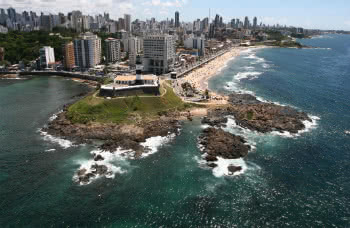In the last 50 years, the so-called developing economies have reached expressive levels of industrialization and urbanization, forming a national bourgeoisie and a middle class of wage earners with relatively high. This moment can be understood through two assumptions: the participation of the State as an entrepreneur and the attraction of transnational companies.
After the 1950s, the process of internationalization of the economy took place in Brazil, with large participation of the State as a businessman and in the development of infrastructure (transport, energy, ports) and incentive policies tax. All these factors, combined with the availability of cheap labor, emerging consumer market and access to raw materials and energy sources, attracted transnational companies to the territory Brazilian. There was a great expansion of the industrial park, mainly durable consumer goods industries (automobiles and household appliances).
The country experienced its late industrialization and fully adopted Fordism, a traditional production system which considered the production capacity and the large industrial parks as fundamentals for the activity industrial. This pattern achieved with the government of Juscelino Kubitschek (1956-1961) was amplified by the military dictatorship (1964-1985). The military created structural works in different Brazilian regions, highlighting hydroelectric plants and highways. Many municipalities in the interior of the state of São Paulo began to develop their industrial districts. During the 1970s, the “Brazilian economic miracle” took place, elevating the country to the position of 8th world economy in 1973, with annual growth rates around 10%.
In the Brazilian case, the Fordist model brought economic growth to the country, but was not able to promote regional economic development. The increase in a country's per capita income does not always represent improvements in the quality of life. The growth that Brazil achieved, especially during the period corresponding to the military regime, built a technical and logistical framework for development, but did not favor it.
Do not stop now... There's more after the advertising ;)
From the 1980s onwards, the State's capacity to promote industrial development was exhausted. - end of the entrepreneurial state - due to unsuccessful economic policies that increased the external debt and the inflation. Externally, developed countries began to adopt neoliberal measures, reducing the role of the State in their participation in certain economic sectors.
In the 1990s, Brazil began an accelerated program of economic opening led by the Collor government. Through the reduction of import tax rates, deregulation of the State, privatization of companies and reduction of subsidies, profound changes were implemented in the industrial structure of the parents. Despite stimulating competitiveness, many small and medium-sized companies did not have the technical and financial support to adapt to these changes. Until today, the main difficulty faced by small and medium entrepreneurs in Brazil is that investments in technology and the credit necessary for the realization of any productive structuring base still depend on state protection. Finally, the country embraced economic neoliberalism as a state policy.
Julio César Lázaro da Silva
Brazil School Collaborator
Graduated in Geography from Universidade Estadual Paulista - UNESP
Master in Human Geography from Universidade Estadual Paulista - UNESP
Would you like to reference this text in a school or academic work? Look:
SILVA, Julius César Lázaro da. "Historical-Economic Summary of Brazil: The Internationalization of the Economy and the Entrepreneurial State"; Brazil School. Available in: https://brasilescola.uol.com.br/geografia/resumo-historico-economico-brasil-internacionalizacao-economia.htm. Accessed on June 27, 2021.


